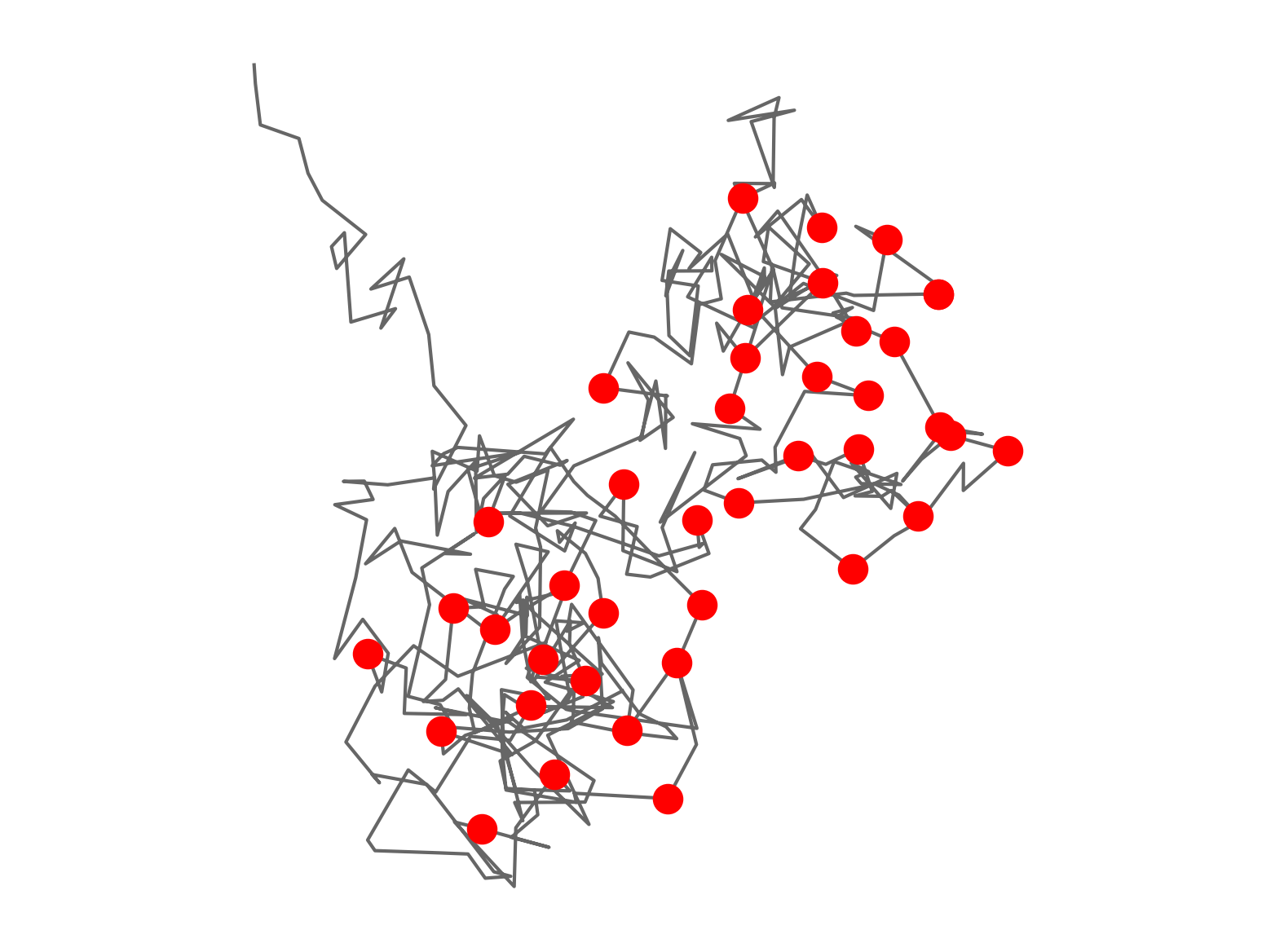Stein Thinning#
About#
Stein Thinning is a tool for post-processing the output of a sampling procedure, such as Markov chain Monte Carlo (MCMC). It aims to minimise a Stein discrepancy, selecting a subsequence of samples that best represent the distributional target.
The user provides two arrays: one containing the samples and another containing the corresponding gradients of the log-target. Stein Thinning returns a vector of indices, indicating which samples were selected.
In favourable circumstances, Stein Thinning is able to:
automatically identify and remove the burn-in period from MCMC,
perform bias-removal for biased sampling procedures,
provide improved approximations of the distributional target,
offer a compressed representation of sample-based output.
API Documentation#
Kernel definitions |
|
Kernel matrix functions |
|
Implementation of Stein thinning |
Installation#
Implementations of Stein Thinning are available for Python, R, and MATLAB:
Get Started#
First, it is important to parametrise the distributional target so that it has a positive and differentiable density \(p(x)\) on \(\mathbb{R}^d\).
In Python, R, or MATLAB, it takes a single function call to start Stein Thinning:
indices = thin(samples, gradients, m)
Here
samplesis an array with \(n\) rows and \(d\) columns, whose rows are the samples produced by a sampling method, such as MCMC,gradientsis an array with \(n\) rows and \(d\) columns, whose rows contain the gradients \(\nabla\log p(x)\) where \(x\) is the corresponding row ofsamples,mis an integer, specifying the number of representative samples required,indicesis a vector of length \(m\), whose elements are integers in \(\{1,\dots,n\}\), indicating which samples were selected.
Stan Examples#
Stein Thinning can be used to post-process the output directly from the Stan family of probabilistic programming languages:
Citing Stein Thinning#
Riabiz M, Chen WY, Cockayne J, Swietach P, Niederer SA, Mackey L, Oates CJ (2022) Optimal Thinning of MCMC Output. Journal of the Royal Statistical Society, Series B, 84(4), 1059-1081. arXiv
Papers Inspired By Stein Thinning#
Benard C, Staber B, Da Veiga S (2023) Kernel Stein Discrepancy thinning: a theoretical perspective of pathologies and a practical fix with regularization. arXiv
Fisher MA, Oates CJ (2022) Gradient-Free Kernel Stein Discrepancy arXiv
Anastasiou A, Barp A, Briol F-X, Ebner B, Gaunt RE, Ghaderinezhad F, Gorham J, Gretton A, Ley C, Liu Q, Mackey L, Oates CJ, Reinert G, Swan Y (2023) Stein’s Method Meets Computational Statistics: A Review of Some Recent Developments. Statistical Science, 38(1), 120–139. arXiv
Hawkins C, Koppel A, Zhang Z (2022) Online, Informative MCMC Thinning with Kernelized Stein Discrepancy. arXiv
Teymur O, Gorham J, Riabiz M, Oates CJ (2021) Optimal Quantisation of Probability Measures Using Maximum Mean Discrepancy. International Conference on Artificial Intelligence and Statistics (AISTATS 2021). Conference arXiv
Chopin N, Ducrocq G (2021) Fast compression of MCMC output. Entropy, 23(8), 1017. Journal arXiv
South LF, Riabiz M, Teymur O, Oates C (2021) Post-Processing of MCMC. Annual Reviews of Statistics and its Application, 9, 529-555. arXiv
Acknowledgements#
This work was supported by the Lloyd’s Register Foundation Programme on Data-Centric Engineering and the Programme on Health and Medical Sciences at The Alan Turing Institute (UK), the British Heart Foundation (SP/18/6/33805, RG/15/9/31534, PG/15/91/31812, FS/18/27/33543), the UK Research and Innovation Strategic Priorities Fund (EP/T001569/1), the UK Engineering and Physical Sciences Research Council (EP/P01268X/1, NS/A000049/1, EP/M012492/1), the UK National Institute for Health Research (II-LB-1116-20001) and the Wellcome Trust (WT 203148/Z/16/Z).
